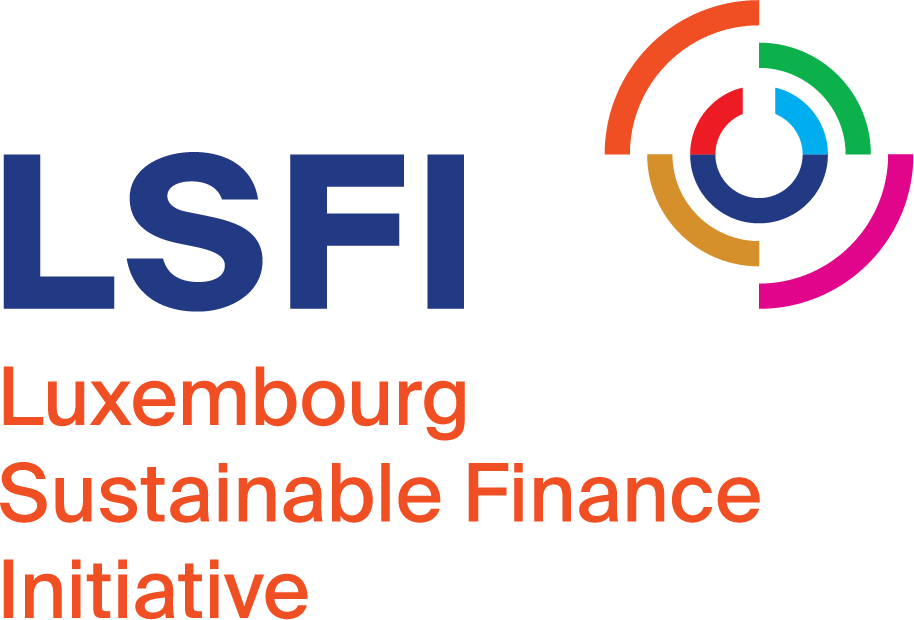Over the last few years, EU authorities have worked on a regulatory framework to provide transparency, clarity and standardization in sustainable finance. This has resulted in the issuance of new legislative pieces such as the European Taxonomy or the Sustainable Finance Disclosure Regulation. As these regulations get implemented, some doubts have arisen with regard to their complexity or their effectiveness towards their objective, and how to adapt it going forward.
In this month’s edition, we interviewed Aleksandra Palinska, Executive Director at Eurosif. We discussed with her what are the key updates on the regulatory front at the moment and how, in her opinion, the regulation should evolve. She also explained to us what’s the mission of Eurosif and her priorities.
(Luxembourg Sustainable Finance Initiative) What’s the Eurosif mission, and what’s the organisation’s added value?
(Aleksandra Palinska) Eurosif works as a partnership of Europe-based national Sustainable Investment Fora (SIFs) with the direct support of their network, which spans over 400 Europe-based organisations drawn from the sustainable investment industry value chain. These organisations include institutional investors, asset managers, financial services, index providers, and ESG research and analysis firms totalling over €20 trillion in total assets.
Eurosif’s mission is to promote sustainable development through financial markets by supporting financing through private and public capital of investments that make a measurable contribution to the sustainable development goals set by the United Nations, the European Union and other European countries.
Through active engagement in EU policy-making, Eurosif strives for ambitious and yet implementable EU sustainable finance rules that accelerate a just transition towards a sustainable economy.
(LSFI) Given your focus and expertise on the European sustainable finance regulatory agenda, what are the key developments taking place now on the regulatory front?
(AP) The asset management sector has been dedicating a lot of time and effort to implementing the Sustainable Finance Disclosure Regulation (SFDR), which was phased in from March 2021. Currently, the European Supervisory Authorities are consulting on reviewing the SFDR Delegated Regulation (so called “level 2” measures) which lay down the technical standards on the content, methodologies, and presentation of sustainability disclosures.
In parallel, the European Commission is starting preparatory work for a comprehensive assessment of SFDR. In autumn this year we can expect a public consultation which will feed into a broader review of this framework. A legislative proposal, however, can only be expected after the new EU Commission leadership takes office following the European elections of June 2024.
The ongoing development of the corporate sustainability reporting standards both at the global (ISSB) and European levels (ESRS) is crucial to increasing the availability, comparability and quality of ESG data and key to ensuring that the EU sustainable finance framework can work in practice.
The latest developments, however, are worrying. Due to the pressures by the organisations representing the “preparers”, the European Commission has scaled back the first set of the standards. The changes include no longer requiring any indicators as mandatory ones (including on climate, own-workforce, SFDR, EU climate benchmarks and Pillar III-related disclosures), making them subject to materiality assessment instead. Furthermore, some disclosures will be phased in over a longer period of time, incl. scope 3 emissions, biodiversity and many social disclosures, and more indicators will be voluntary.
This is likely to prove problematic for asset managers and other financial market participants who need corporate ESG data to prepare their own sustainability-related disclosures. The European Commission will soon launch a four-week public consultation on the final draft ESRS set 1 which constitutes a last opportunity for investors and other financial market participants to influence these standards. After all, making EU sustainable finance rules work in practice and the overall success of the EU sustainable finance agenda largely depends on the availability of quality, reliable, and comparable corporate ESG disclosures.
The Corporate Sustainability Due Diligence Directive (so-called CSDDD), currently in the final stages of negotiations, has huge potential to transform the economy into a sustainable economy. Its provisions include mandatory climate transition plans, including climate targets, mandatory environmental and human rights due diligence throughout the value chain, covering large financial and non-financial companies. It also aims to introduce some incentives for directors to pursue sustainability targets. This recent op-ed provides further information.
In June, the European Commission is due to publish a legislative proposal for a regulation aimed to require ESG rating providers to ensure more transparency in their methodologies and how they manage conflicts of interest.
(LSFI) The EU sustainable finance regulation is facing accusations claiming it is unclear or too complex to implement, almost becoming an obstacle to the transition. What’s your view on these accusations? In your opinion, how should the regulation evolve or adapt to meet the critics that it is receiving?
(AP)Preventing greenwashing is not an easy task, especially when you try to do it properly, following a science-based approach and ensuring comparability across financial products, financial market participants, and different countries.
The implementation of the EU sustainable finance regulation has been challenging. That said, its implementation has already transformed the financial markets for sustainable products by introducing a much higher level of transparency on how sustainability risks and adverse impacts are considered and integrated into investment decisions.
The EU has been a pioneer of sustainable finance rules and has inspired many jurisdictions around the globe to follow its lead. I would say that this is, in itself, a great success. However, when you do something for the first time, it is never perfect. Many EU sustainable finance rules have been developed either in parallel, causing consistency issues, and/or at different speeds, with sequencing that has not always been ideal. That is why we need to take stock of all EU sustainable finance rules, consider whether and how they fit together, and make certain adjustments, and in some cases even more comprehensive revisions. A perfect example is SFDR which needs improvements regarding certain definitions and concepts, for instance; what constitutes sustainable investments and what are ESG characteristics, setting minimum criteria, and giving proper consideration to which category is best suited for impact/transition investments or whether we need to create a new one.
(LSFI) Eurosif celebrated its Annual General Meeting last month, gathering all its members from the different European countries. What are the main synergies and divergences you identified on that day among these countries?
(AP) Each national sustainable investment forum (SIF) is unique in terms of its business model, activities and priorities. However, all SIFs share the mission to promote sustainability through financial markets and they are acting on it. Some SIFs are more regulation-oriented, others try to deliver impact by engaging with financial market participants and investee companies. Many SIFs conduct market studies, organise conferences and events to increase awareness and inform the public debate. Some coordinate trainings for upgrading financial advisers and other market practitioners’ sustainability-related skills. Overall, there is plenty of room for experience sharing and cooperation among national SIFs.
(LSFI) What’s the Eurosif agenda for the next months and the key priority areas?
(AP) We will keep working on SFDR, including both level 1 and level 2 reviews, as well as corporate sustainability reporting by engaging within the EFRAG Sustainability Reporting Board and by responding to public consultations. We will also continue to engage with EU policymakers striving for ambitious and well-calibrated CSDDD.
Eurosif also has an ongoing project on developing a methodology for the purpose of future market studies measuring sustainable investments. As part of the project, consideration is given to what constitutes impact and transition investments.
Later this year, we will do some work with regard to the Shareholder Rights Directive and its future review.





